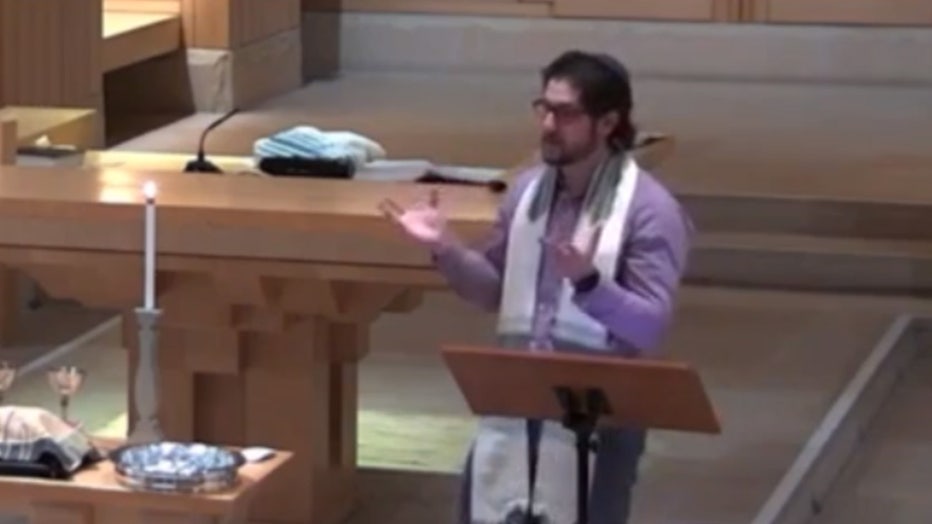Long Island rabbi uses artificial intelligence to create sermons

Rabbi or robot?
While Rabbi Josh Franklin found the AI-generated sermon to be helpful, he said the bot's version lacked a human empathy, FOX 5 New York's Jodi Goldberg reports.
Artificial intelligence has now made its way in places of worship.
When Rabbi Josh Franklin had a bout of writer’s block ahead of his Shabbat sermon late last year, he turned to ChatGPT. It’s an open-source artificial intelligence (AI) tool designed to interact in a conversational way.
Franklin went on the app and inserted a series of six to seven prompts.
"I told it, you know, ‘Write about intimacy and vulnerability,’" he told FOX 5 New York. "‘Write me a sermon of about 1,000 words, make it on the subject of vulnerability and make sure it’s in the voice of a rabbi.’"

Rabbi Josh Franklin delivering a sermon. (FOX 5 New York)
In a matter of seconds, the bot was able to synthesize a four-minute sermon on the Torah portion and how it related to vulnerability and intimacy.
When he finished, he challenged congregants at The Jewish Center of the Hamptons to guess who wrote it.
"No one at the time would’ve thought it was a bot," he said.
While it was certainly passable, Franklin found the bot’s version lacked empathy and came to realize his job, along with the jobs of other religious leaders, is safe and won’t likely be replaced by a bot for some time.
RELATED: ChatGPT may be smart enough to graduate law school
Data collected by Imperva Inc., a cybersecurity company, found that the global AI market is valued at over $136 billion.
"As much as we might want to downplay the effectiveness and how intelligent it might be, it’s quite intelligent but what religious leaders are in addition to intelligent is human and you can’t replace the distinctly human qualities that each person has," Franklin said.
ChatGPT is estimated to have reached 100 million monthly active users in January, just two months after its launch, according to multiple reports.
AI expert and CEO of Imperva, Inc., Kunal Anand said ChatGPT and other forms of AI will continue to improve rapidly.
"We’ve been putting so much content on the Internet and now we get to ask it questions and it gives us an amalgamation of all the things we’ve said, he said. "I think in the next five years, we’ll see a special use cases for GPT cases like business and editorial."
And while this story wasn’t written with help from ChatGPT, it could’ve generated questions to ask Rabbi Franklin who is considering exploring further how spirituality and artificial intelligence meld together in the modern world.


